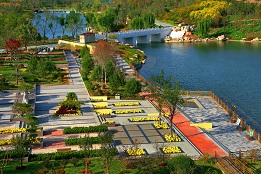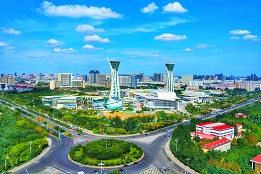Weifang rolls out the red carpet to bring in talent dream team
Ma Xiangkun, deputy director from the organization department of the zone's Party working committee, said that top local government officials usually meet up with leading professionals immediately when they show interest about moving there.
Ma added that the zone also adjusted its recruitment drives to meet demand and it helped solve problems for newcomers "in the most efficient manner".
The zone has introduced a series of policies over the past two years to strengthen its position in the recruitment market, investing a total of 100 million yuan ($15.08 million) to bring in expertise from outside.
In April, the zone unveiled two recruitment initiatives, aimed at bringing in fresh blood. The two policies include providing enhanced benefits for urgently needed talent, as well as greater government support for university graduates seeking to start a new business there.
Under the new rules, additional annual subsidies will be provided for bachelor's, master's and doctorate degree holders from 15 majors in 23 universities listed in China's Double First-class Project, who fill top priority positions. The subsidies for degree holders are 30,000 yuan, 50,000 yuan and 80,000 yuan respectively.
Officials added that well-established innovation and startup service platforms were also providing extra incentives to attract international professionals. They said the platforms were ideal springboards for newcomers to demonstrate their intelligence and skills.
The zone has also been fast on its feet elsewhere. A series of supportive policies were released to encourage the companies to launch research and development facilities, such as technical centers and experimental engineering labs.
To date, five national-level business incubators and seven provincial-level incubators have been launched in the tech hub. More than 480 businesses are undertaking incubation programs there.
In addition, two provincial-level innovation support platforms were added to the map this year, providing an additional 31,000 square meters of working space for business incubations.




